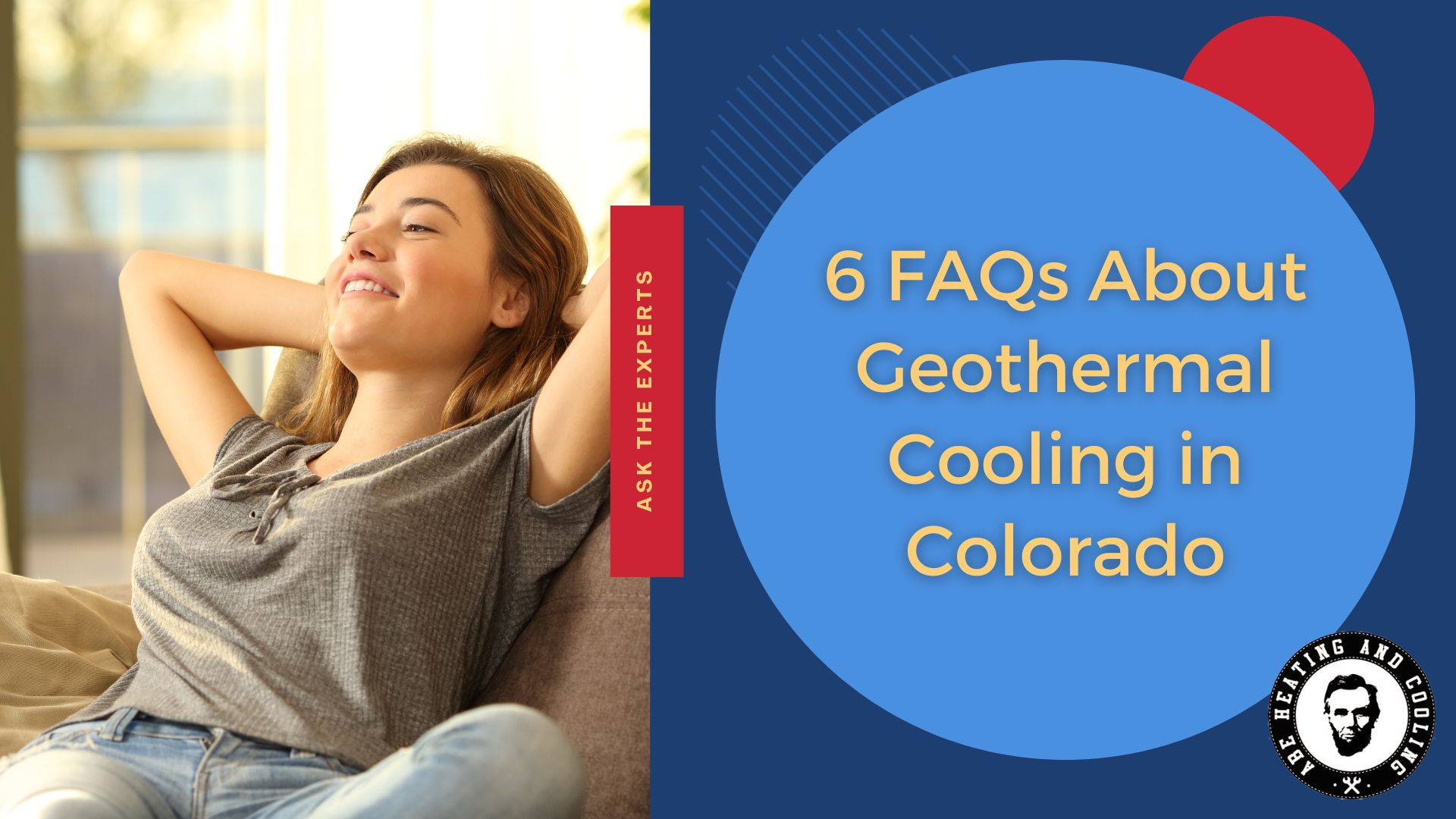“Abe's Heating and cooling were professional and on time. they helped me with two time sensitive projects and did excellent work. I know who I'll be calling if I should ever need an HVAC technician.”
Blog

Geothermal cooling is a highly efficient and environmentally friendly way to cool your home. If you live in Colorado and are considering geothermal cooling, you may have some questions. Below are some frequently asked questions about geothermal cooling in Colorado.
Geothermal cooling harnesses the natural heat stored in the earth to cool your home. It involves the use of a ground-source heat pump, which utilizes a closed-loop system of pipes buried underground. These pipes circulate a mixture of water and antifreeze, absorbing heat from the indoors and transferring it to the earth. The cooler air is then circulated throughout your home, providing an efficient and cost-effective cooling solution.
Yes, geothermal cooling is well-suited for Colorado’s climate. The earth’s temperature remains relatively stable throughout the year, even during extreme weather conditions. This consistency allows geothermal systems to operate efficiently regardless of the outdoor temperature. Whether it’s hot or cold outside, a geothermal system can provide reliable cooling for your home.
Geothermal cooling systems can provide up to 70% energy savings compared to traditional air conditioning systems.
Geothermal cooling relies on renewable energy from the earth, reducing greenhouse gas emissions and minimizing your carbon footprint.
Geothermal systems have a lifespan of 20-25 years, compared to 15 years for traditional air conditioning systems.
Geothermal systems operate quietly, eliminating the noise commonly associated with traditional air conditioners.
While the initial installation costs may be higher, the long-term energy savings can offset the initial investment.
The cost of geothermal cooling installation can vary depending on factors such as the size of your home, the complexity of the installation, and the location of your property. It is best to contact a reputable HVAC company like ABE Heating and Cooling for a free estimate specific to your needs. Keep in mind that while the initial costs may be higher compared to traditional cooling systems, the long-term energy savings can make geothermal cooling a cost-effective choice.
Yes, geothermal cooling systems are eligible for various rebates and incentives in Colorado. The state’s energy office offers rebates and low-interest loans to homeowners who install geothermal systems. Additionally, the federal government offers a 30% federal tax credit for the installation of geothermal heating and cooling systems. These incentives can help offset the initial costs and make geothermal cooling even more affordable.
Yes, geothermal systems can provide both cooling and heating for your home. The same ground-source heat pump used for cooling can reverse its operation to provide heating during colder months. This dual functionality makes geothermal systems a versatile and efficient choice for year-round comfort.
Geothermal cooling systems require minimal maintenance compared to traditional cooling systems. The underground pipes are typically durable and require little to no maintenance. For optimal results, you’ll need to schedule regular maintenance check-ups with a qualified HVAC technician to ensure the system is running efficiently. Routine maintenance may include checking the refrigerant levels, inspecting electrical connections, and cleaning or replacing air filters.
Geothermal cooling is a highly efficient and eco-friendly option for cooling your home in Colorado. With its energy savings, long lifespan, and versatility, geothermal cooling can provide reliable comfort while reducing your carbon footprint. Embrace the benefits of geothermal cooling and enjoy efficient and sustainable cooling all year round.
If you’re considering geothermal cooling for your home in the Denver Metro area, contact ABE Heating and Cooling for a free estimate and expert advice tailored to your specific needs.